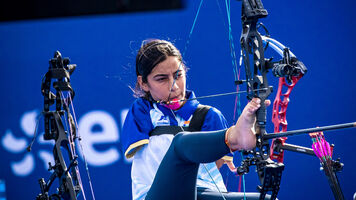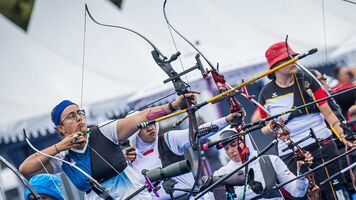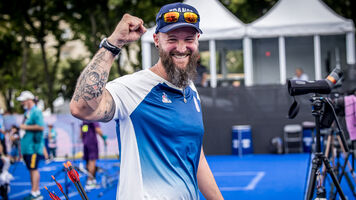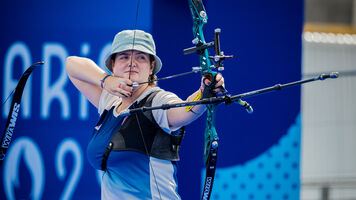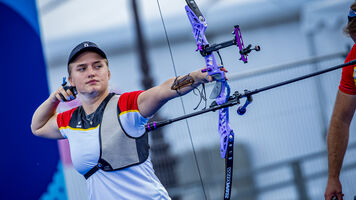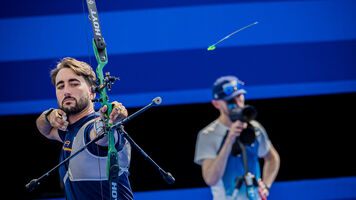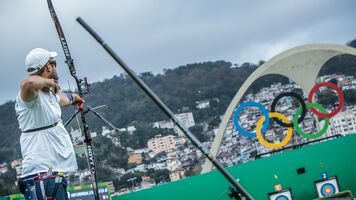Karina Winter: “It was just me, my coach and the target”
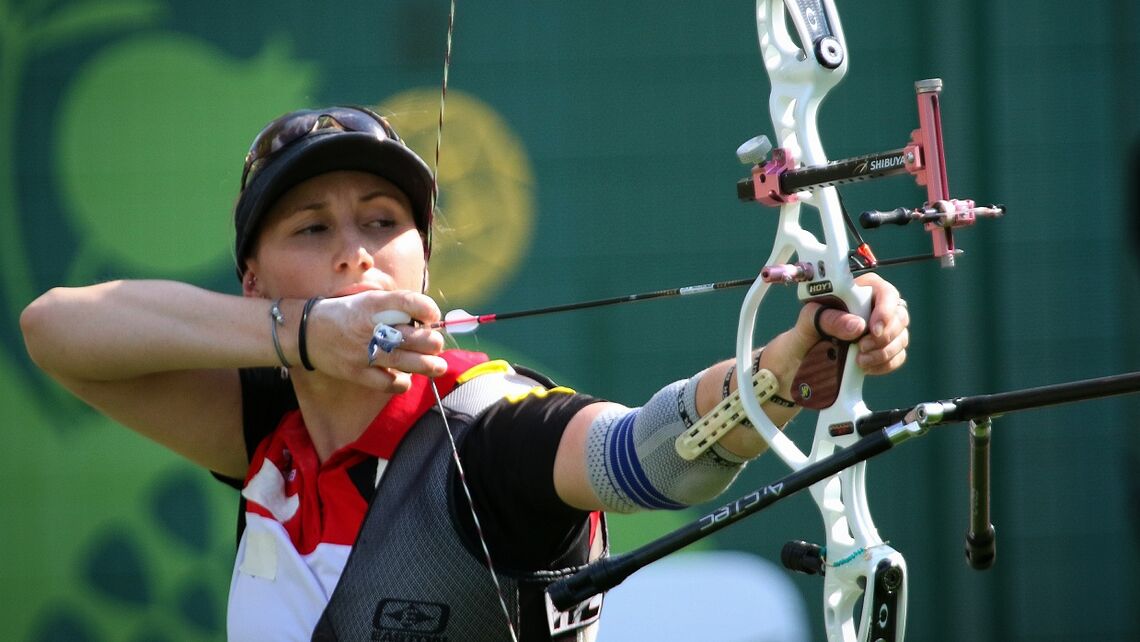
Together with her German teammates – Elena Richter and Lisa Unruh – Karina Winter took part in the first European Games in Baku in 2015. It was the first international multisport event of Karina’s career.
In the recurve women‘s individual competition Winter, who sits in fourth in the world rankings heading into the Copenhagen 2015 World Archery Championships, collected gold. It’s a memory, she says, that will stick with her for a long, long time.
“After I was chosen for the European Games, I was looking forward to the event very much,” she recalls. “Because there’s a huge difference between being surrounded only by archers and by other athletes or sports.”
The German ladies’ team reached the quarterfinals, where they shot against Belarus.
Set one was a success for the Germans but after that Belarus took the lead. The final score was 214-210 – and Hanna Marusava, Alena Tolkach and Ekaterina Timofeyeva knocked out Winter and her team.
“We went to Baku to have a good competition and a good test before the world championships in Copenhagen at the end of July,” explains Karina. “We wanted to shoot well.”
“Winning a medal was the minimum and what we aim for in European tournaments. It was really disappointing to go out before getting the chance to shoot for medal.”
“We were all sad, upset and annoyed.”
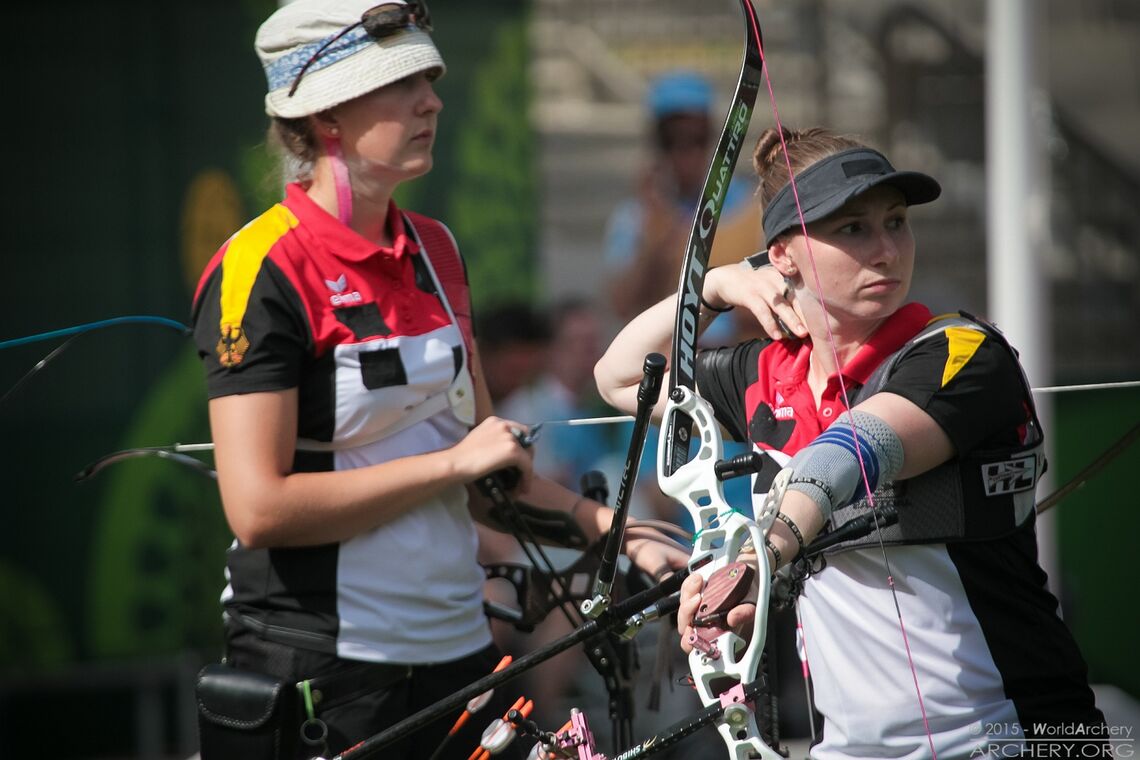
Despite the result, Karina says she enjoyed the environment and attention the Games brought. Every match took place in a show court where a huge screen, commentator and live scoring were all in play. Since she has not shot at an Olympic Games to date and has serious plans to make Rio – which will be the same, or bigger – the young German marked Baku down as good practice.
“Because everyone could follow each match, I noticed that my teammates were out of the competition in the third round and I was still in the game,” says Karina, struggling to find the right words to describe her feelings that day.
“After I had to force a shoot-off in my second round match, something happened to me – I was on fire, incredibly confident, strong and feeling great.”
Karina shot a perfect arrow into the X-ring to win that match.
“From that point on, I knew anything was possible with my emotions like that.”
In the quarterfinals, Winter beat Russia’s Natalia Erdynieva 7-1, moving on to a semifinal against Evangelia Psarra from Greece. She beat her 6-2 and won a spot in the gold medal final.
That final match was against Maja Jager from Denmark, the reigning recurve women’s world champion.
Jager started out with a 10 and then a lead after the first set, before Karina struck back in the second: a five-point advantage over the three arrows and the match drawn level at 2-2.
Karina Winter was truly on fire from then on out – she hit five out of six 10s over the last two sets, dropping a single point, while Jager’s best arrow was a nine. Winter kept the lead to the end and took gold.
“My opponent, Maja from Denmark, was a strong archer. Not only because she’s the reigning world champion but also because I have competed with her in many competitions before,” says Winter, as she describes how little was going through her mind on the field.
“I wasn’t paying attention to anything during the match. It was just me, my coach and the target. When I started to shoot I had nothing on my mind except the rhythm, timing and the feeling. I did it like it was routine.“
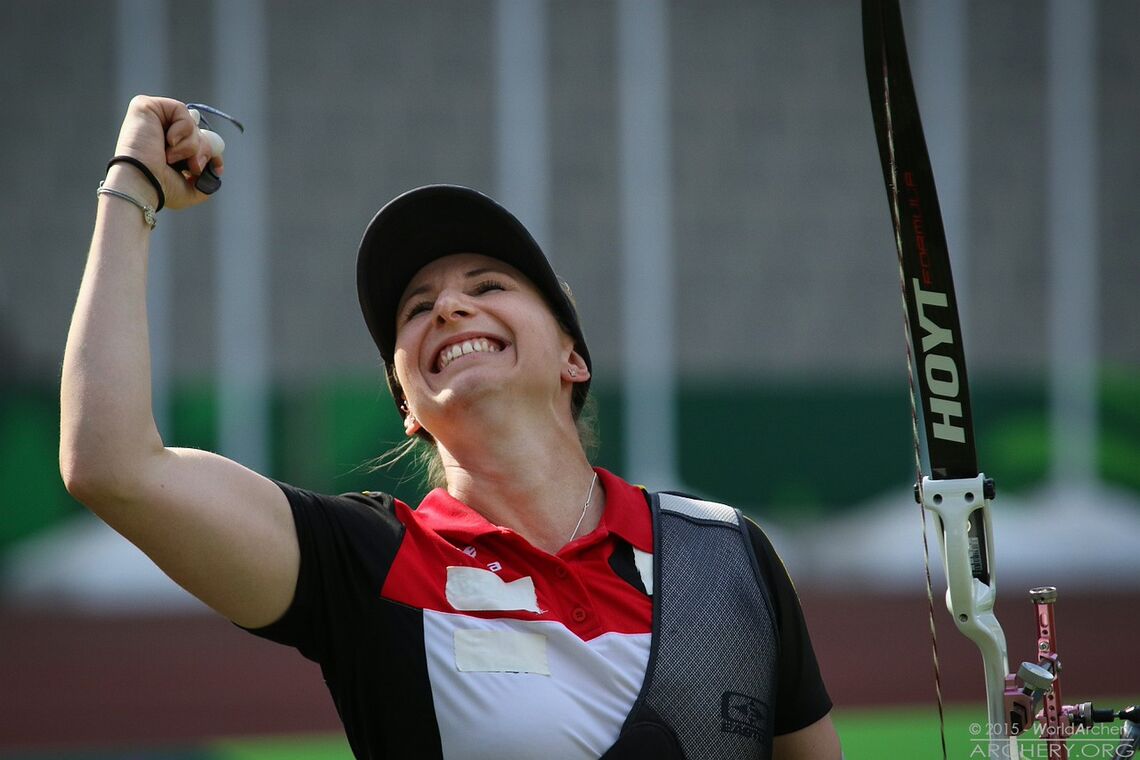
Once her last arrow landed in the middle of the target, Karina realised that she had scored a perfect 30 in the final set – which the German athlete describes as an amazing feeling.
“I felt that the medal was not just for me, but for my teammates as well – as a symbol of recovery and reparation,” she explains.
The medal, Karina says, has been a long time coming.
It was back in 2009 that things started to turn in her favour. At the World Archery Indoor Championships in Rzeszow, Poland, she won her first gold medal in international recurve competition.
“The most important thing is that I wasn’t satisfied with my shooting before Rzeszow,” she says. “I had technical issues and my confidence wasn’t the best.”
When she arrived in Poland, her mood changed completely. As soon as she shot at the practice range, that emotion – the fire she described in Baku – returned and Karina remembers telling her coach: “There she is again.”
With a personal best of 585 out of 600 for the 18-metre ranking round, Winter placed fourth in qualification before making her way through the brackets.
She came up against Berengere Schuh of France in the semifinals. Schuh was the top seed and had set a new world record of 592 during qualification – a record that still stands in 2015. Karina won the match by two points, 118-116.
(Indoor head-to-head matches were decided by 12-arrow cumulative score at that time.)
“In the gold medal match I met Natalia Valeeva,” she says. “I had never shot with or against her before. All I knew was that she was a veteran and multiple world champion.”
Remembering she focused on shooting her arrows just like she had in the previous phases, Winter’s match with Valeeva ran tight to the last arrow. It got exciting, she says. The final score was 114 to 113.
“I won gold against Natalia. The moment was unbelievable, incredible and just awesome. She was and is one of the best archers on this planet.”
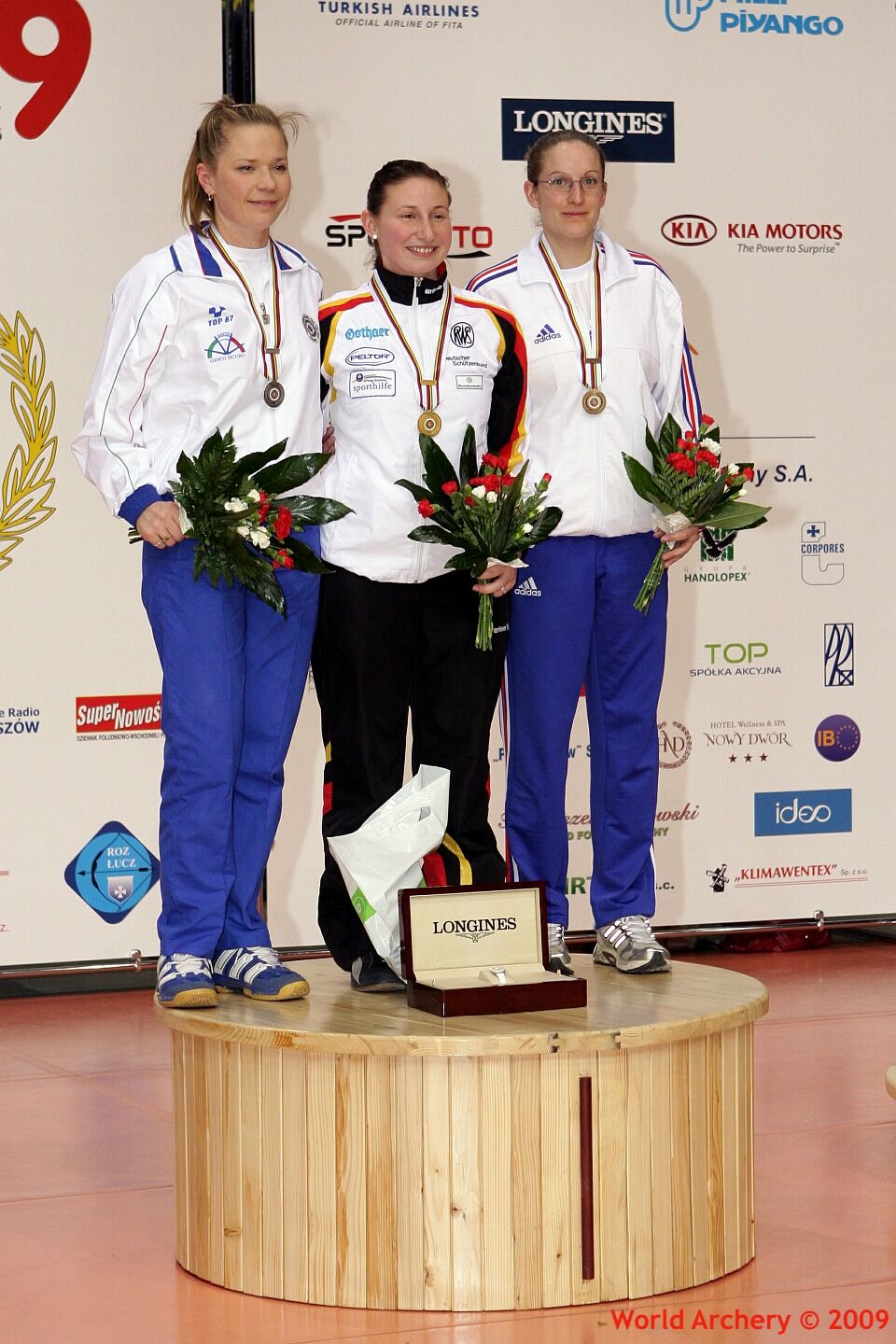
With qualification for Rio 2016 on the horizon, Winter recalls her qualification campaigns for previous Games with disappointment: “It was strange and sad not to qualify in 2008 and 2012.”
Her drive is undeniable in the quest for the next Olympiad.
“I want to qualify for Rio,” she states. “Not just because it’s my third try, but because I feel the time is right.”
Winter just completed a university masters degree in March 2015. She wanted the studies to be finished before the pre-Olympic season started so she could concentrate fully on competition.
Interestingly, Karina’s first competitive love was not archery. She started gymnastics at the age of five before quitting six years later, aged 11, because of an accident and after which doctors discovered she had been born with a back injury.
She still has a soft spot for that sport: “Whenever I watch gymnastics on television or in person my heart starts pumping – and I get that same feeling I had in Rzeszow and Baku when winning the competitions. I’m filled with happiness and joy.”
“The day before I won gold in Baku I went to watch the gymnastics finals. I felt incredibly powerful. Watching gymnastics and winning archery gold feels the same to me, strangely enough.”
Even though she had to leave her first sport, she still loves it – and it brought her to archery.
“There’s a connection and home is where the heart is,” she concludes. “So maybe when I qualify for Rio, I will watch gymnastics again. Two lovely sports, together again, reunited in Rio.”





